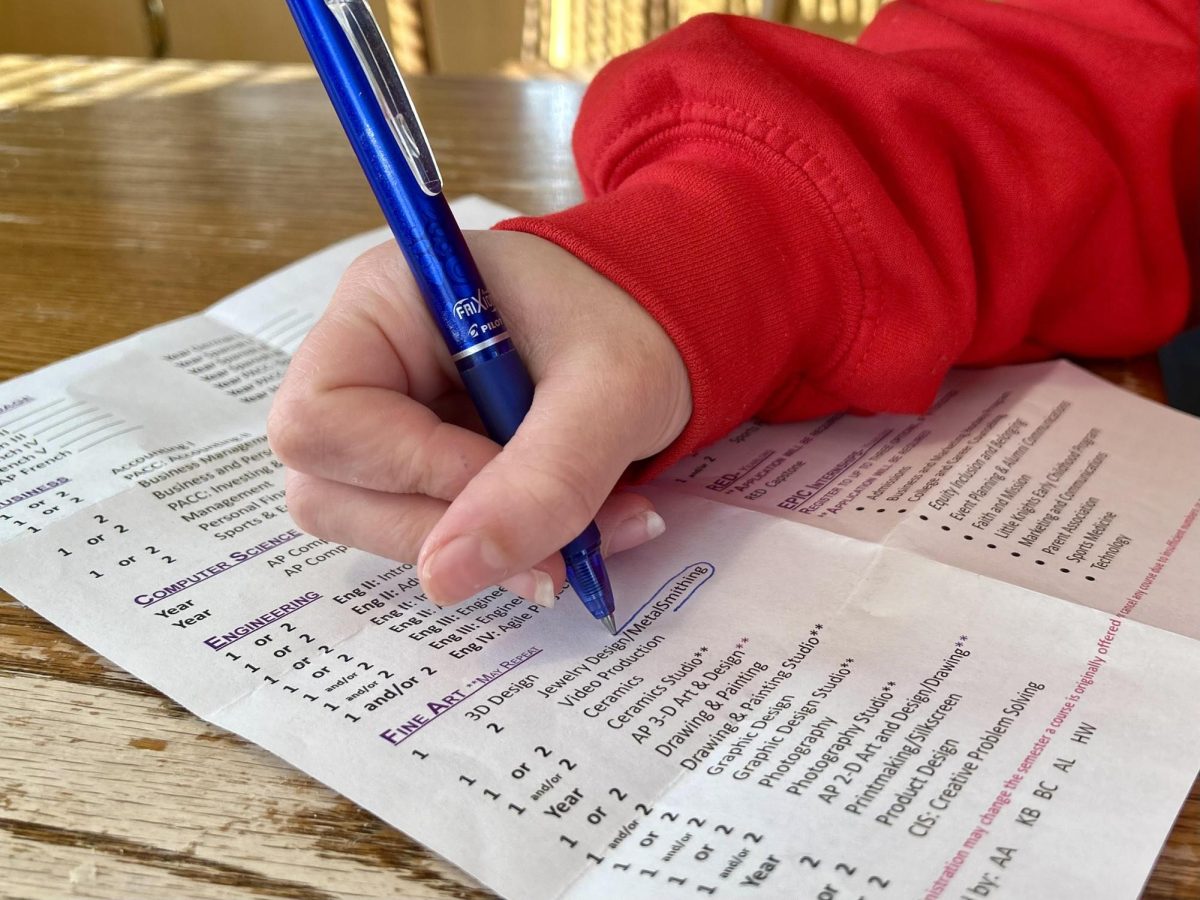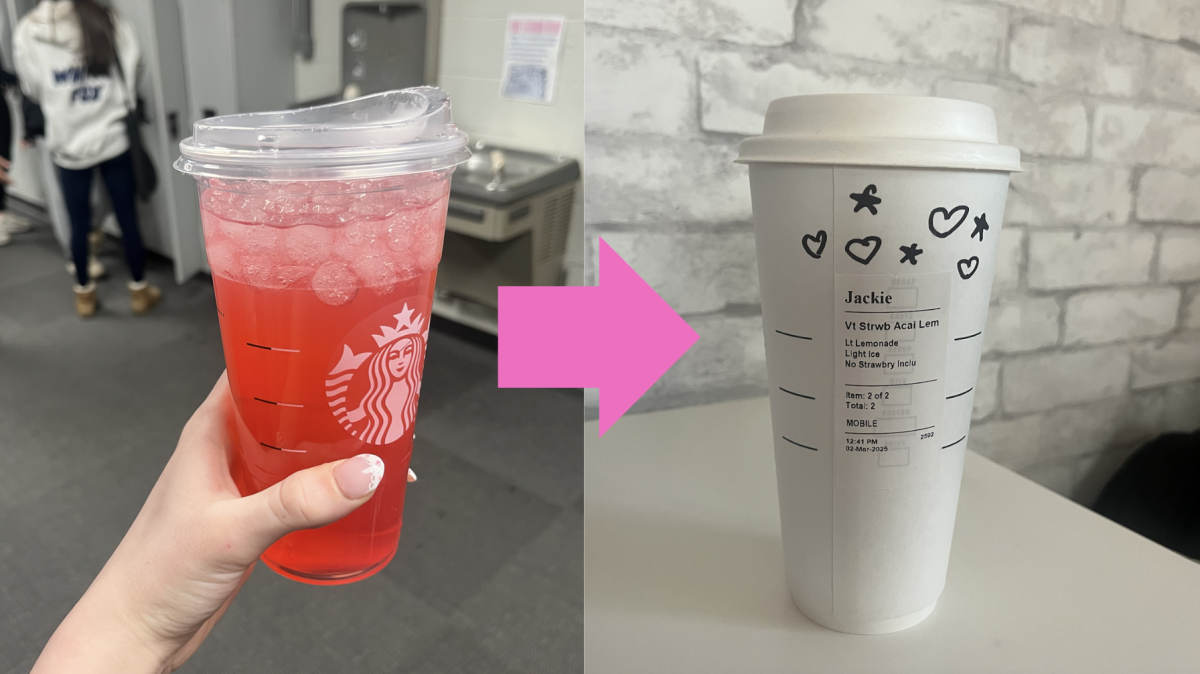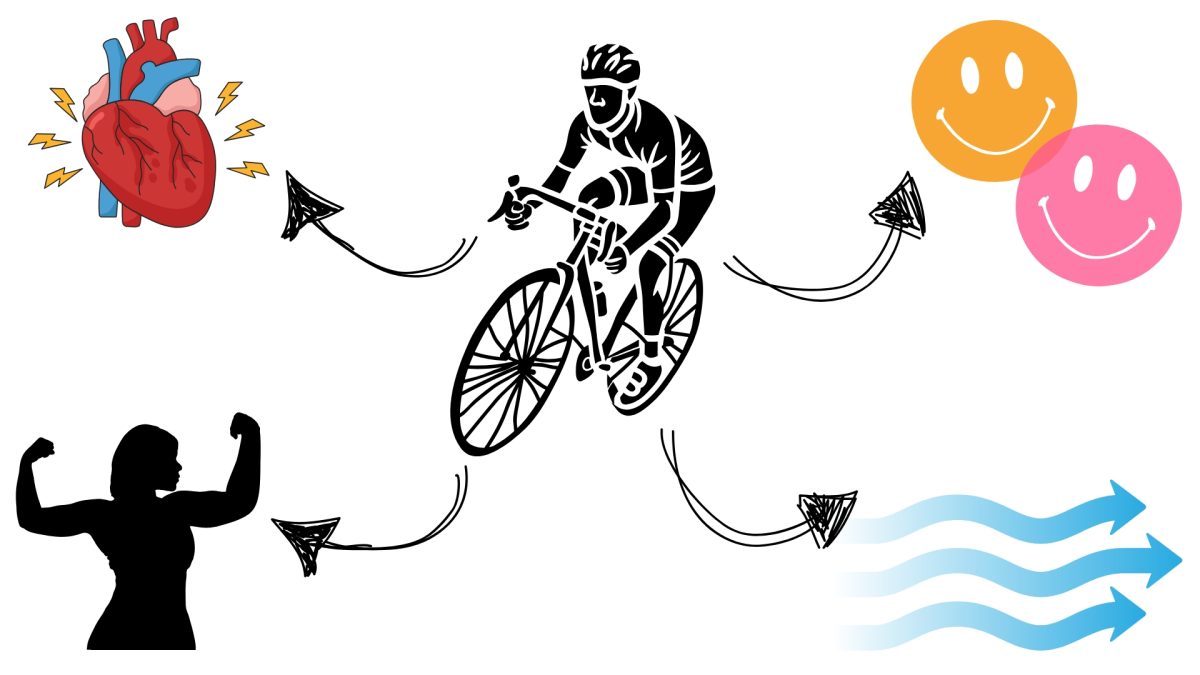It’s the morning of National Testing Day. You sit at your desk and break the seal to yet another practice ACT. Your stomach twists, your sweaty hand grips the No. 2 pencil, and your mind races, searching for answers. You find your thoughts wandering and begin to wonder: why am I required to take the Pre-ACT or PSAT?
The Pre-ACT and the PSAT are designed to help students prep for the ACT and SAT. BSM students have been taking the Pre-ACT since their freshman year. It is an important resource for freshmen and sophomores because it exposes them to the test structure, but they don’t need to take it as often as required. Juniors shouldn’t be required to take the Pre-ACT or PSAT their junior year because some students have already taken the ACT, not all juniors are applying for the National Merit Scholarship, and the pressure of standardized testing can contribute to unnecessary stress.
In a Knight Errant survey, 28.6% of current BSM juniors responded, saying they have taken the ACT. Someone who has taken the ACT already should not have to take the Pre-ACT. I understand and acknowledge that it is good practice, but practice tests are easily available outside of school; many current juniors are involved in ACT tutoring. Most of the time spent at tutoring is spent completing practice tests and problems. If you’re already taking practice tests on your own, then you shouldn’t be required to come to school on testing day for another practice test.
However, the National Merit Scholarship is a main contributing factor for students taking the PSAT. To qualify for the National Merit Scholarship, you must be a junior in high school taking the PSAT. A specific score on the PSAT is necessary to receive the $2500 scholarship. Many students are unaware of this scholarship, and even fewer are applying for it. Since fewer students are applying for the scholarship, taking the test isn’t necessary for many students. For example, in a Knight Errant survey, only 21.4% of BSM juniors responded by saying that they are applying for this scholarship.
I am more focused on improving my ACT score through personal studying and tutoring instead of taking another standardized test. Standardized testing can be particularly stressful for high school juniors, who often face significant pressure regarding their ACT scores. While the Pre-ACT can help students get a range of how they will do on the ACT, it can also lead to anxiety. Getting a “bad” score on the Pre-ACT can be overwhelming. Offering it as an optional resource would be much more productive because it would provide students with an opportunity to apply for the National Merit Scholarship and it could serve as practice for the ACT, rather than forcing them to take a test. Students who don’t think the Pre-ACT and PSAT would benefit them won’t bother taking it, and can have the day off to catch up on school work or do ACT prep that fits their learning process.




































![Teacher Lore: Mr. Hillman [Podcast]](https://bsmknighterrant.org/wp-content/uploads/2025/03/teacherlorelogo-1200x685.png)




